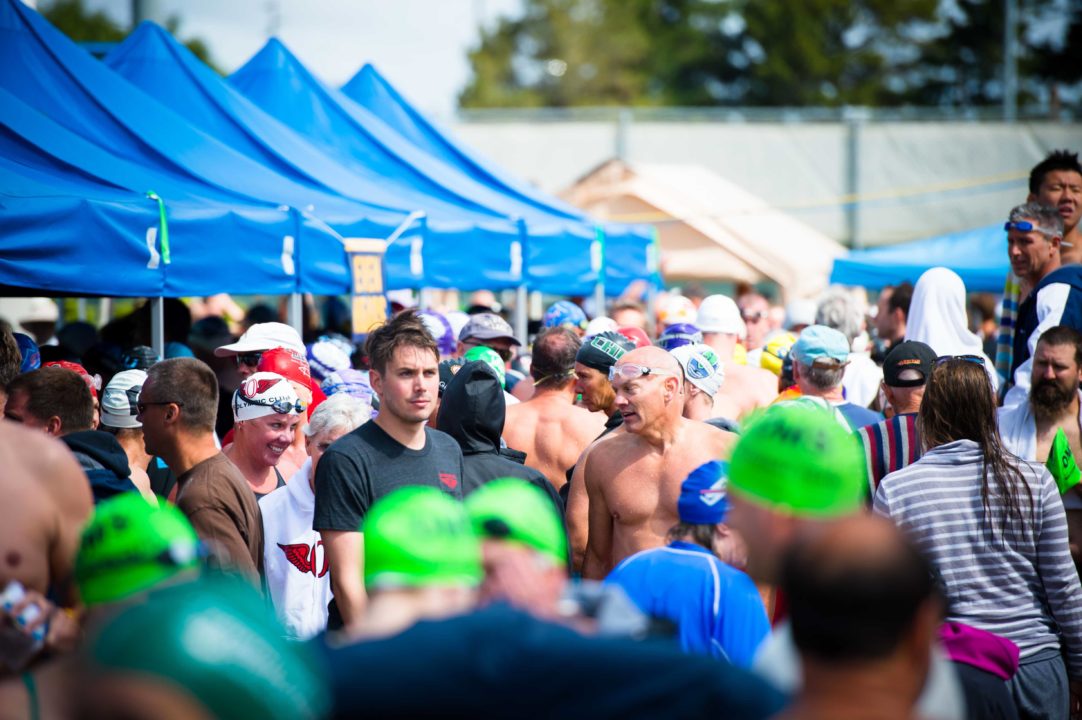With the end of the season fast approaching, swimmers are beginning to taper for peak performances. Elite athletes know how to minimize the negative side effects of traveling for meets, including how to sleep well on the road. You’ve put in all the hard work—now let’s discuss a few simple tips to help you rest and recover the night before you race.
1. Adjust to the correct time zone
Adjusting to a new time zone requires a bit of discipline. If you stick to an appropriate bedtime, it will still take you about one day for each hour of time difference to adjust to the new schedule. If you are traveling west to east, it is especially challenging to go to bed earlier. Start making adjustments to your bedtime before you leave for your trip.
2. Turn off all lights and devices
Bright light inhibits the production of melatonin, which is responsible for triggering sleepiness when released. Do not stare at tablets, phones, or the TV in the half hour or so before bedtime.
3. Turn down the thermostat
Colder temperatures help people sleep more soundly. Your body temperature drops down to a set point optimal for your brain to induce sleep. Think of this temperature as an internal thermostat. If your surrounding room is too hot or too cold, you will be more prone to waking up as your body struggles to maintain its set point. Generally, colder temperatures are preferable, but you need to be comfortable. Try setting the dial to somewhere between 65 and 70 degrees Fahrenheit. The comfort level of your room temperature will affect the quality of your REM sleep—the period of deep sleep during which dreams occur.
Experts from the American Academy of Sleep Medicine say you should think of your sleep environment like a cave: it should be cool, quiet, and dark. The same idea applies to naptime in between prelims and finals. Having a roommate on trips can add an element of surprise to this equation. Bring earplugs and decide on a bedtime you both will follow to avoid disrupting each other’s sleep. Set a back up alarm in the morning so you wake up in time for warm up, especially if the time zone makes it difficult to wake up in the first couple days of a meet. After all your training is in the bag, pay attention to these simple tips to maximize your rest for peak performances!

ABOUT BRIDGEATHLETIC
 BridgeAthletic works with elite professional, collegiate, and club swimming programs to provide a turnkey solution for dryland training. Led by Nick Folker, the top swimming strength and conditioning coach in the world, our team builds stroke-specific, custom-optimized dryland programs for each of our clients. The individualized workouts are delivered directly to athletes via our state of the art technology platform and mobile applications. Check Nick and BridgeAthletic out as recently featured in SwimSwam.
BridgeAthletic works with elite professional, collegiate, and club swimming programs to provide a turnkey solution for dryland training. Led by Nick Folker, the top swimming strength and conditioning coach in the world, our team builds stroke-specific, custom-optimized dryland programs for each of our clients. The individualized workouts are delivered directly to athletes via our state of the art technology platform and mobile applications. Check Nick and BridgeAthletic out as recently featured in SwimSwam.
ABOUT NICK FOLKER
 Nick Folker is the Co-Founder and Director of Elite Performance at BridgeAthletic. Nick’s roster of athletes includes 35 Olympians winning 22 Olympic Medals, 7 team NCAA Championships and over 170 individual and relay NCAA championships. Megan Fischer-Colbrie works as the Sports Science Editor at BridgeAthletic. Megan was a four-year varsity swimmer at Stanford, where she recently graduated with a degree in Human Biology. The Championship Series by BridgeAthletic is designed to empower athletes with tips from the pros that will help them reach peak performance come race day. We will be covering competition-focused topics such as nutrition, recovery, stretching, and mental preparation.
Nick Folker is the Co-Founder and Director of Elite Performance at BridgeAthletic. Nick’s roster of athletes includes 35 Olympians winning 22 Olympic Medals, 7 team NCAA Championships and over 170 individual and relay NCAA championships. Megan Fischer-Colbrie works as the Sports Science Editor at BridgeAthletic. Megan was a four-year varsity swimmer at Stanford, where she recently graduated with a degree in Human Biology. The Championship Series by BridgeAthletic is designed to empower athletes with tips from the pros that will help them reach peak performance come race day. We will be covering competition-focused topics such as nutrition, recovery, stretching, and mental preparation.
Follow BridgeAthletic on Twitter here.
Like BridgeAthletic on Facebook here.
Swimming News / Swim Training courtesy of BridgeAthletic, a SwimSwam partner.
